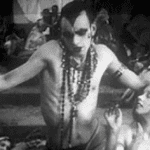 Our World
Our World  Our World
Our World  Pop Culture
Pop Culture 10 Incredible Female Comic Book Artists
 Crime
Crime 10 Terrifying Serial Killers from Centuries Ago
 Technology
Technology 10 Hilariously Over-Engineered Solutions to Simple Problems
 Miscellaneous
Miscellaneous 10 Ironic News Stories Straight out of an Alanis Morissette Song
 Politics
Politics 10 Lesser-Known Far-Right Groups of the 21st Century
 History
History Ten Revealing Facts about Daily Domestic Life in the Old West
 Weird Stuff
Weird Stuff 10 Everyday Products Surprisingly Made by Inmates
 Movies and TV
Movies and TV 10 Actors Dragged out of Retirement for One Key Role
 Creepy
Creepy 10 Lesser-Known Shapeshifter Legends from Around the World
 Our World
Our World 10 Science Facts That Will Change How You Look at the World
 Pop Culture
Pop Culture 10 Incredible Female Comic Book Artists
 Crime
Crime 10 Terrifying Serial Killers from Centuries Ago
Who's Behind Listverse?

Jamie Frater
Head Editor
Jamie founded Listverse due to an insatiable desire to share fascinating, obscure, and bizarre facts. He has been a guest speaker on numerous national radio and television stations and is a five time published author.
More About Us Technology
Technology 10 Hilariously Over-Engineered Solutions to Simple Problems
 Miscellaneous
Miscellaneous 10 Ironic News Stories Straight out of an Alanis Morissette Song
 Politics
Politics 10 Lesser-Known Far-Right Groups of the 21st Century
 History
History Ten Revealing Facts about Daily Domestic Life in the Old West
 Weird Stuff
Weird Stuff 10 Everyday Products Surprisingly Made by Inmates
 Movies and TV
Movies and TV 10 Actors Dragged out of Retirement for One Key Role
 Creepy
Creepy 10 Lesser-Known Shapeshifter Legends from Around the World
Top 10 Things Hollywood Still Gets Wrong About Society
Hollywood plays an important role in shaping our perception of our place in society. Movies may also define our expectations about the day-to-day connections we have with other people. Whether it’s about love, enmity, compassion, or greed, human interaction in movies directly influences our ideas of how relationships work in real life.
10 Movies Based On Common Misconceptions
Unfortunately, Hollywood still gets a lot of things wrong about society. In theory, that should be fine because the goal of many movies is to portray the world as we want it to be—not as it really is. These inaccuracies become a problem, though, when they lead to ignorance about certain issues in real life.
10 War Is a Glorious Affair
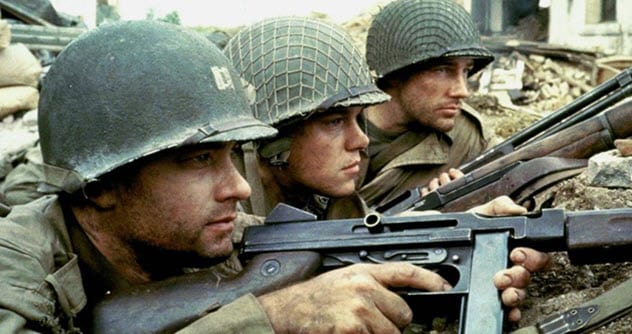
War is one subject that filmmakers have a social responsibility to portray accurately. Yet, they still refuse to get right. As quite a few critics have pointed out, the depiction of war in popular cinema remains inaccurate at best and intentionally skewed to influence the public’s mood at worst.
It can be argued that public perception affects our cinema and popular fiction and not the other way around. If that’s true, then cinema’s job is to show the world as it should be, not as it is.
War is a misunderstood affair even in movies that make a genuine effort to show conflict like it is in real life. According to some critics, a true anti-war movie is quite difficult to make. Even if you try to show aspects like the brotherhood between soldiers and excessive violence, the film unintentionally promotes the whole act.
Dennis Rothermel, a retired professor of philosophy, argues that a movie can only give us an accurate representation of real-life conflicts if it has “random infliction of violent death, abject terror, [and] heinousness as a norm of behavior.”[1]
That doesn’t mean that movies never get it right. Some popular works—like Full Metal Jacket, Platoon, and Paths of Glory—definitely stand out when it comes to realistic portrayals of the horrors of war. If film directors and writers were a bit more diligent about the depictions of war on the big screen, popular support for wars around the world probably wouldn’t be as high as it is.
9 People Have Too Much Money
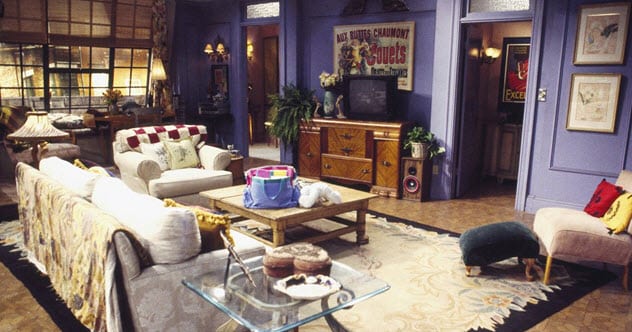
There are good and bad economic cycles. However, even when the world has rising rents and stagnating wages, it seems that Hollywood simply has no idea of how things really are. Characters in TV shows and movies usually have a lot of free time to drive the plot, all the while doing underpaid creative jobs.
Just look at Friends, the story of six young residents of New York who do almost nothing all day and can still afford rent in relatively huge apartments in posh parts of New York.[2] Of course, it’s technically a TV show and not a movie. However, the big screen is full of unrealistically rich characters, too.
8 No Matter What Happens, the Hero Gets the Girl in the End
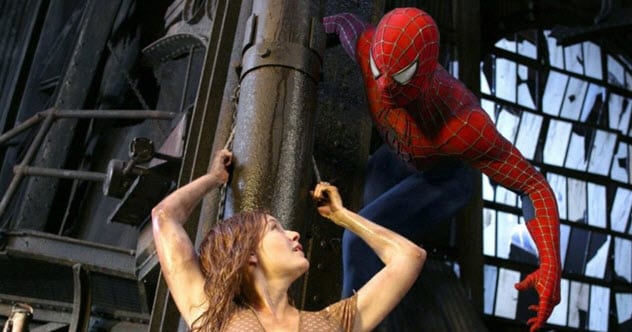
A lot has been said about inaccurate portrayals of women in movies, though that’s an obvious consequence of writing rooms being traditionally male-dominated spaces. Although things are rapidly changing—thanks to a deluge of women now going for writing careers in film and television—we’re still a long way from Hollywood correctly portraying women as the normal, three-dimensional people that they are.
One of the most damaging examples is when movies perpetuate the notion that the guy would obviously end up with the girl at the conclusion of the story. Most movies adhere to this cliche regardless of how separated it is from real life.
It doesn’t matter if the woman has a completely different life before she meets the hero or if they have no reason to be attracted to each other. By the time the movie ends, circumstances will make them come together and live happily ever after.[3]
Apart from promoting the faulty belief that you’re entitled to a romantic partner just because you did your job well, it causes even deeper problems in society. As protagonists of the opposite sex almost always end up getting together, it promotes the idea that most male-female relationships are romantic in nature. As anyone who has stepped out of the house can tell you, that’s not really the case.
A realistic movie would end with the lead actor and actress solving the big problem and returning to a friendship in which they only get to see each other once a month due to work and family.
7 Parents Are Just Bad at Their Jobs
There’s no dearth of intentionally bad parents in Hollywood, though we’re not here to talk about them. In movies, it seems like parents are generally bad at their jobs. You’ll first notice it when you see a kid in a movie sneak out of the house to go party at night. Then you start seeing it in every movie.
If movie parents were anything like real parents, many movies would cease to have a plotline. Kids in movies carry out entire adventures without their parents ever knowing about it.
Unfortunately for all the youngsters out there, parents in real life are quite adept at stopping their kids from doing what movie kids do. The most effective way parents do it is by controlling the money supply. Pocket money is often intentionally calculated to stop kids from sneaking out and partying at night or partaking in any other calls to adventure.[4]
Real parents usually know what their kids are up to at any given point. There are very few cases where a group of bright school friends solves a major world problem without their parents knowing about it.
6 Parties Are Always Fun
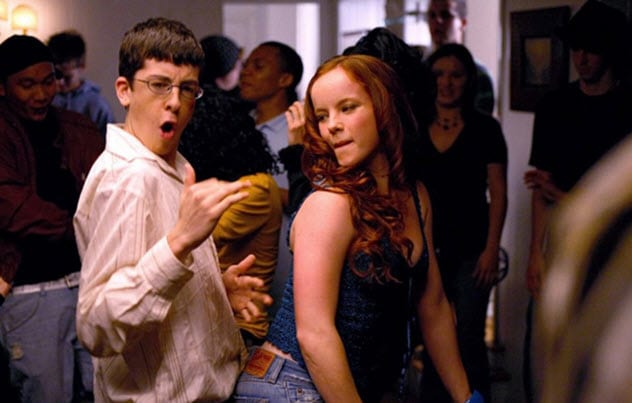
Every time people get together to celebrate something in the movies, it’s all fun and games. Rarely does anything go wrong or anyone get bored. Almost every college party is awesome and eventful.[5] If it isn’t, that’s an important part of the plot. Bad parties have their own role to play in advancing plotlines.
As you know, that’s not the case in real life. Most college parties are boring affairs and usually don’t end in something scandalous. Of course, good parties exist, though they’re usually the exception. Most of the time, parties are simply a bunch of tired, overworked people sipping on wine and talking until 11:00 PM, after which they promptly go back home and sleep.
5 Villains Are Ugly; Heroes Are Attractive
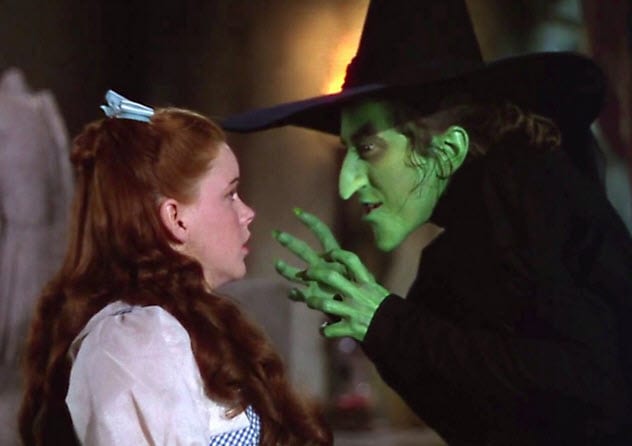
We know that life is a bit easier for individuals at the top of the attractiveness pyramid. Your service at restaurants is faster, your interviews are easier, and people willingly let you skip queues all the time. Being attractive also increases your chances of survival, even though good looks don’t have any inherent survival benefits.
A big part of that could be attributed to our popular fiction, especially the movies. Villains are usually portrayed as ugly, in clear contrast to conventionally attractive lead actors and actresses.
Although we understand that it’s necessary to create that much-needed binary of good and evil, being ugly isn’t necessarily bad in the real world. In fact, being less attractive than someone else has absolutely zero effect on your skills, day-to-day abilities, or intelligence. That’s not to say that all movie villains are ugly, but attractive ones are usually antiheroes or relatable villains.[6]
To see how it works in the real world, just look at how attractive criminals—like Ted Bundy— can get away with their crimes for so long. Or how well-dressed, polite politicians who are actively working against the people keep getting reelected.
4 Killing the Villain Ends the Problem
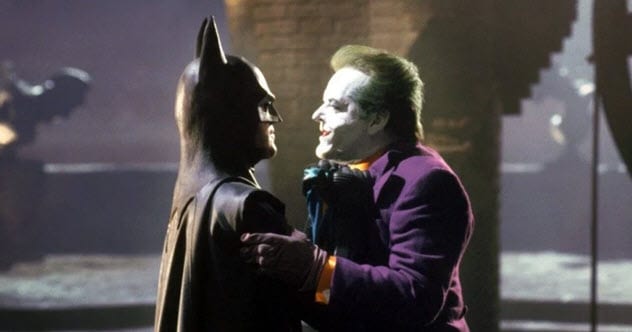
With few exceptions, it’s usually quite easy to tell the good guys from the bad ones in movies. Villains and heroes are clearly defined, appealing to our innate desire to see the world in simple, black-and-white terms.
Of course, that’s not how it is in real life. No one in history—other than Hitler, of course—was completely good or bad. Accurate portrayals are rarely successful, though, as people really do want to see a hero beating a villain at the end. Other than forcibly putting history into neat boxes that we can clearly oppose or support, this also promotes the perception that complex, entrenched problems can be eliminated by killing the villainous leader.
Movies usually end with the bad guys dying and things going back to normal. They ignore the fact that the underlying problems created by those villains still exist.
Take Harry Potter. Sure, by the end of the series, he has killed Voldemort and dispersed his army. While it solves the immediate problem, it doesn’t do anything about the wave of racial supremacy that Voldemort has already unleashed on the magical world.
Lord of the Rings ends with the destruction of Sauron, but he wasn’t the only inhabitant of Mordor. The Orcs could revolt and continue the war in the aftermath of the movies.
We see this in real life, too. Killing Osama bin Laden didn’t end Islamic terrorism. ISIS improved upon al-Qaeda’s methods to create an even more radical form of terrorism, and it could happen again. Of course, Al-Qaeda itself remains a potent force in quite a few countries.[7]
Killing Hitler may have ended the immediate threat from the Nazis. However, he was just a figurehead for various racial supremacist movements that were popular around the world at that time—movements that are still alive and kicking to this day.
Associating wider problems with one easily dismissible villain also lets us absolve our involvement in the relevant issues. It’s easy for the people of Gotham to root for Batman over the Joker because it distracts them from the fact that they’re equally responsible for the socioeconomic conditions that give rise to criminals like the Joker in the first place.
3 People Have No Work, and Their Bosses Are Great
We’re not sure if Hollywood execs just don’t know how things are on the ground, but people in movies don’t seem to have the same amount of work as we do. Lunch breaks can be unrealistically long and full of exciting, drawn-out events. In fact, it seems like everyone is allowed to leave at 5:00 PM.
If you work in any competitive, modern office, the chances are that you work long hours multiple times a week with little to no time to indulge in dramatic character arcs. It’s hard to execute intricate love plots involving multiple people across the city if you’re a fresher and have to do three jobs six days a week just to make the rent.
In a similar vein, bosses in movies are surprisingly lenient. Have you ever seen a character at work who faces an emergency and asks a coworker to cover for him while he deals with it? Yeah, that doesn’t happen in real life as you can’t take over someone’s job as a personal favor in real life.[8]
2 No One Ever Finishes Their Meals
For most people, meals in movies are perfectly normal affairs. Eating morsels of food is mostly a background activity and something that’s only added as a prop to the overall setting.
When you think about it, people in movies should be terribly malnourished. If you notice characters eating anything in a movie, they seem to have a fundamental problem finishing it. How many times have you seen a character prepare a whole breakfast only to watch her kid, husband, or other side character take a bite of it and leave?[9]
We’re guessing a lot because it happens in many movies.
We don’t have to tell you why this is inaccurate as people usually finish their meals in real life. It’s one of the more harmless misconceptions from Hollywood as it hardly affects real-life situations. But it would still be rude to leave a meal midway in most social settings.
1 Creepy Behavior Is Actually Love
Although most of us love a classic rom-com, it only takes rewatching one of them to realize that Hollywood has normalized stalking.
From the famous jukebox scene in Say Anything to the borderline harassment of sending one letter every day to someone in The Notebook, Hollywood regularly portrays as acceptable the types of behavior that would put you behind bars in real life. The Onion even satirized it in one of their classics from 1999 titled “Romantic-Comedy Behavior Gets Real-Life Man Arrested.”
That’s not just satire, either. Stalking is a real crime around the world. Just take the United States, whereas many as 7.5 million people endure some form of stalking every year.
While we won’t assume that all cases have the same motivations, enough stories exist about crazy exes and jaded lovers to prove that it’s a real problem. Although we understand that many factors may contribute to stalking, the movies are definitely not helping.[10]
For more lists like this, check out 10 Ridiculous Myths We Believe Because Of Movies and 10 Medical Myths You Believe Because Of Movies.
About The Author: You can check out Himanshu’s stuff at Cracked and Screen Rant or get in touch with him for writing gigs.







